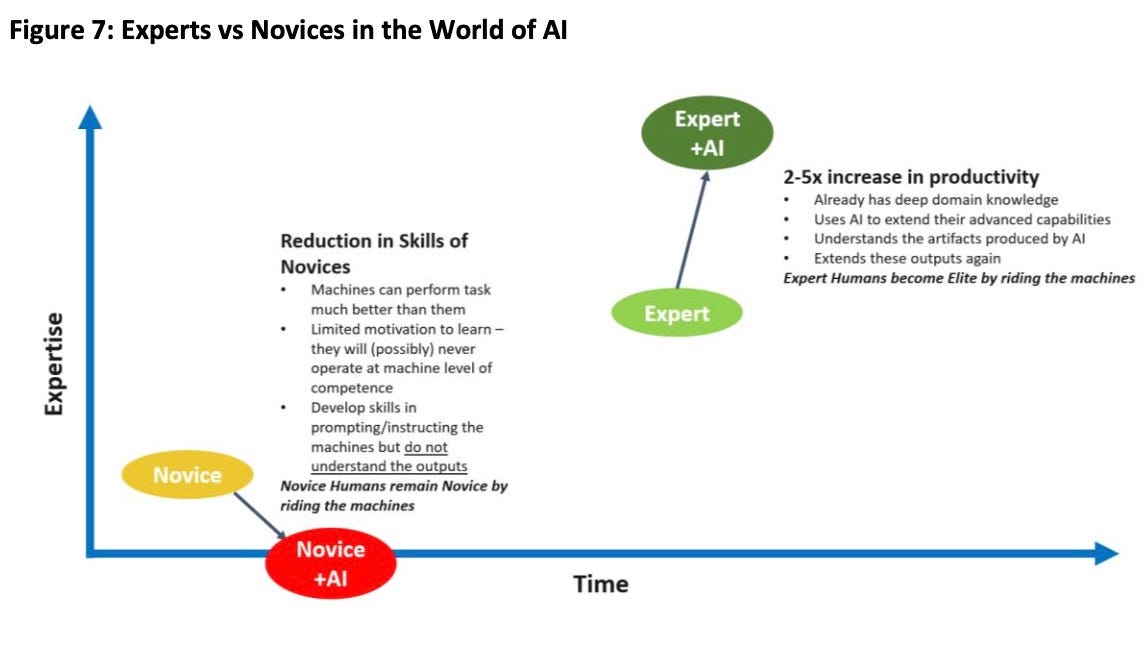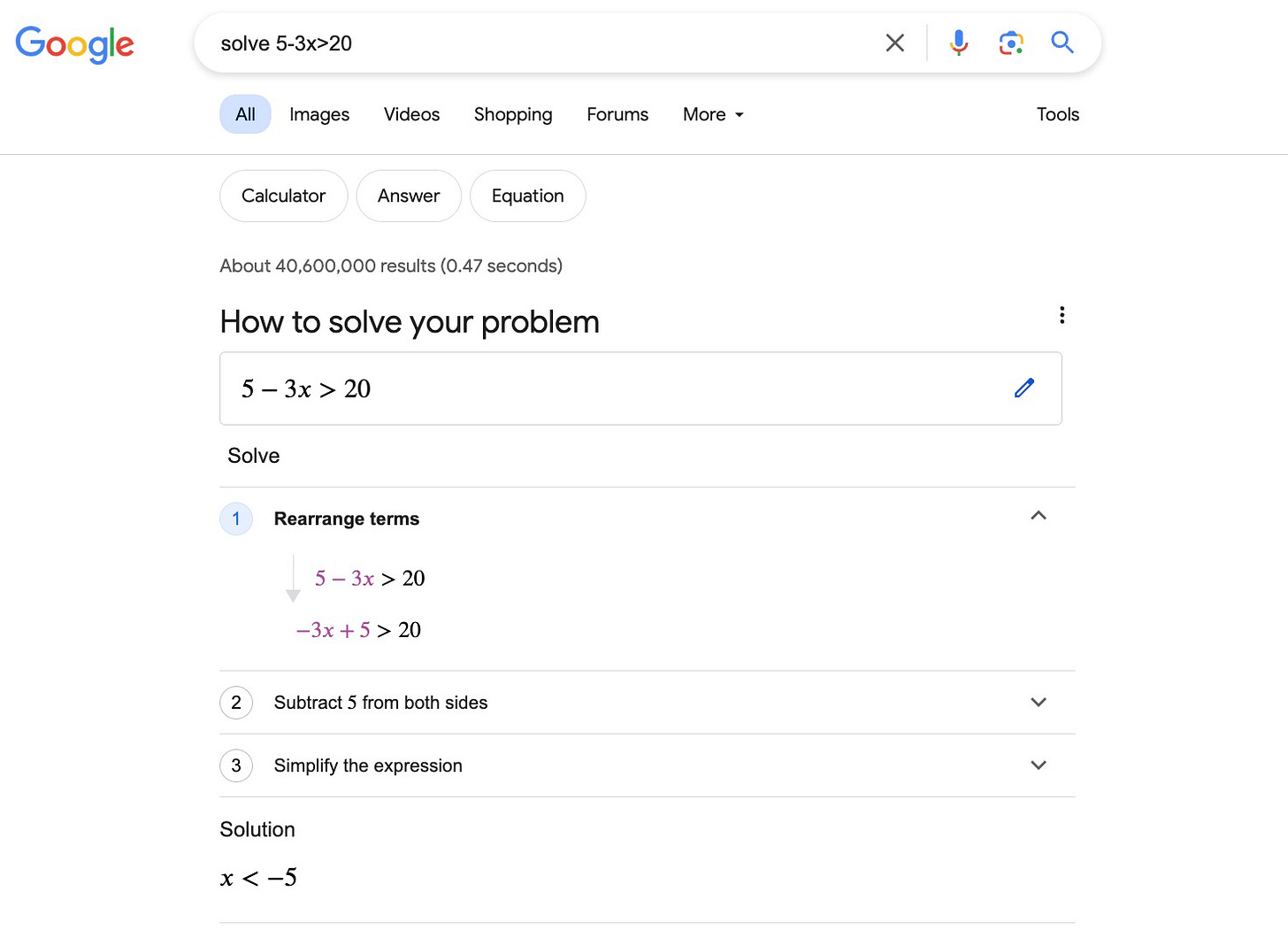What Happens When Students Google Math Problems?
A reflection on AI, teaching, and learning
There is only one idea about artificial intelligence that has me thinking differently about everyday classroom teaching. It's this figure from a paper on the future of AI in education by Arran Hamilton, Dylan Wiliam, and John Hattie.
Here's their thesis. AI can do a lot of things for us but it requires domain-specific knowledge to use well. For instance, AI can help write code but if you don't know anything about code you'll have trouble getting it to work. If you have some coding knowledge, AI will make you better and more efficient.1 That logic applies to lots of different fields. AI can help boost your productivity and create a virtuous cycle of learning if you already have some expertise. If you don’t have that expertise the AI is a black box. Maybe you can use it, but without understanding its outputs you will be limited and stuck in a cycle of reliance on the AI.
One place I'm seeing this isn't actually generative AI. It's Google. I've noticed my students Googling questions much more often. It might be specific to the math that I teach but in the last year Google has gotten a lot better at answering math problems. It can't answer everything but it can do quite a bit.
I see the same phenomenon that the authors above see in AI. Students who mostly know the math often use Google to remind themselves of a small detail they forgot or figure out a missing piece they don’t quite understand. Google bolsters their knowledge and they end up able to do a lot more math independently. Other students Google and blindly copy what Google says, often getting the right answer but sometimes writing things that are wildly nonsensical. Students who have some knowledge use Google to learn, others use Google as a substitute for learning and fall further behind.
Some people will read this and say, "have them practice on paper!" We do plenty of paper practice, but I also use DeltaMath a lot along with a few other digital practice tools. They save me a ton of time and digital practice is the easiest way to get each student quick feedback and give quick mixed practice. I don't want to become the "don't Google stuff" police but I don’t want to throw computers out entirely either.
I'm not sure what to do. There was a past version of me that would say "teach students how to use their resources well" but that hasn't worked very well so far this year. I’m not just worried about whether or not students learn how to solve inequalities. I’ve been unsuccessful in convincing a lot of my students that Googling answers is unhelpful for their learning. I’m worried that they are learning to rely on computers in exactly the way that will stunt their learning down the road. Google will only get better at solving math problems as time goes on; this problem isn’t going away.




This post really sums up some of my thinking from the last year or so of teaching first year uni maths. Some students flourish with technological help whereas other students seem to regress in their understanding. Like you, I fear banning AI/google because I use it to help me do my own work. Thank you for sharing :-)
I think, this will be a bit like "Should we allow calculators?" discussion in the past. Eventually we will find a way that students use AI comfortably. We also see that there is no quick cheat to any complex learning. I worry that AI may interrupt students' creative thinking skills. When you assign them an open ended problem, will AI's suggestions kill some potential creative thinking?